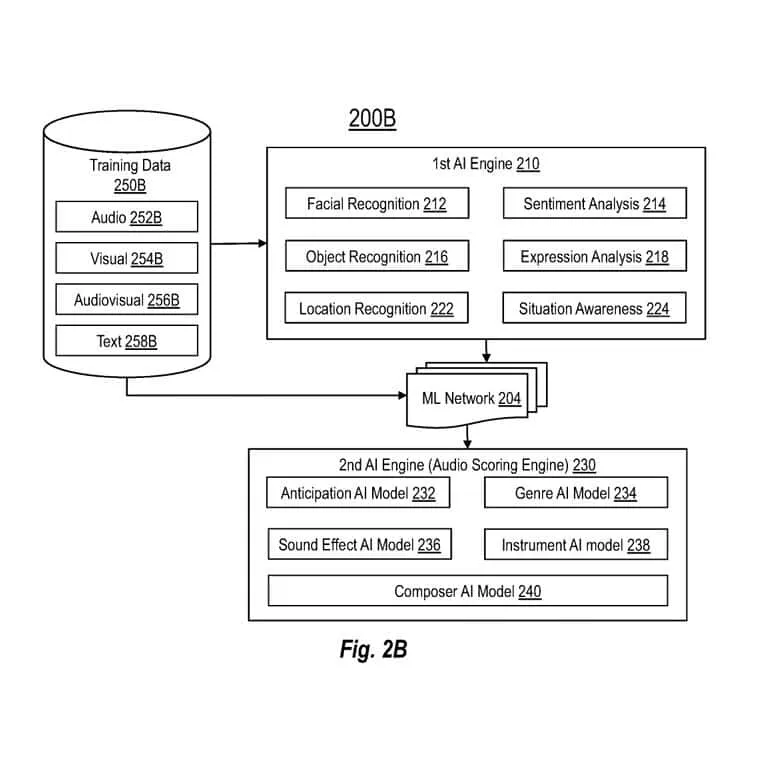Microsoft’s New Patent Unveils Copilot for Creating Music to Accompany Videos and PowerPoint Presentations
Microsoft, the tech powerhouse based in Redmond, has recently started updating its Copilot tool with a sleek, new interface that enhances the user experience. However, the company has even more ambitious plans in store for this AI-driven assistant.
In a newly released patent, Microsoft unveils its development of an artificial intelligence model for composing audio scores. This innovative technology aims to create music or sound that aligns with various forms of media, including videos, text, PowerPoint presentations, virtual realities, and even video games currently in the production phase.
The patent, intriguingly titled “Artificial intelligence model for composing audio scores” , explores the methods by which this advanced Copilot tool would generate music.
Initially, the process involves accumulating substantial training data from a diverse range of audiovisual datasets encompassing both visual and audio elements.

These datasets undergo thorough analysis to extract a variety of features. This includes examining the visual characteristics of the video, such as colors, shapes, movements, and scenes. Additionally, any textual elements present in the video, like subtitles or on-screen text, are also gathered. The tool will also analyze existing audio features within the video itself, differentiating them from a musical score.
Once the data is extracted, Copilot will evaluate these features to establish correlations. For instance, it may identify that certain scenes—like a sunset—commonly correspond with specific types of music, such as calming melodies.
With training on these features, the AI model will utilize its correlation system to generate suitable audio scores that align with the visual and textual attributes of new video content.
This groundbreaking technology opens up numerous potential applications, including:
- Film and Video Production: Automatically crafting background scores for feature films, television series, or online video content.
- Marketing: Composing music that perfectly matches the tone and message of advertisements.
- Gaming: Creating adaptive soundtracks that shift in response to game visuals and player actions.
- Virtual Reality: Enhancing immersive experiences through audio that evolves with the visual environment.
With its capability to generate music, Copilot could significantly reduce the time required for audio production, ensuring that the soundtrack complements the visual content seamlessly by automating the process of composing audio scores.
It’s important to note that the AI model currently offers basic music composition capabilities through the SUNO plugin, which was launched earlier this year.
Nevertheless, an enhancement of that plugin would be beneficial, allowing creatives to establish their vision for music compositions before presenting it to a professional music composer.
While concerns about potentially replacing human composers are valid, empowering Copilot to compose music would primarily enhance productivity in the long run. What are your thoughts on this innovative development?
You can read the patent here.
Leave a Reply